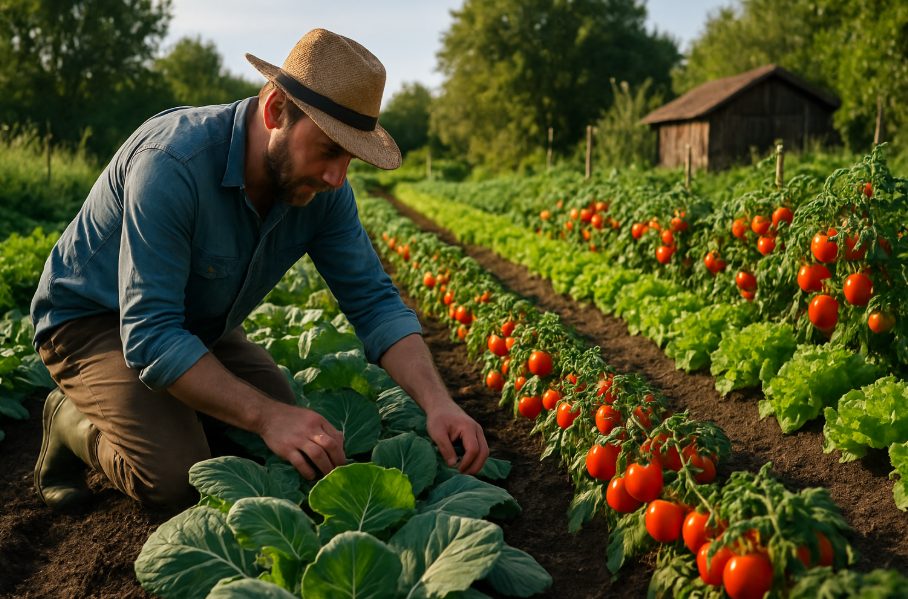Kasur, a fertile district in Punjab, Pakistan, has long been known for its agricultural productivity. Among its major farming sectors, vegetable farming and cultivation plays a crucial role in supporting local livelihoods and food supply. However, seasonal rainfall patterns especially the monsoon, significantly influence the success or failure of vegetable farming in Kasur.
Importance of Rainfall in Kasur’s Agriculture & Farming
The climate of Kasur is characterized by hot and dry summers, mild and pleasant winters, and a distinct monsoon season that typically spans from July to September. During the summer months, temperatures can rise significantly, creating a need for consistent irrigation to support crop growth. However, it is the arrival of the monsoon that brings much-needed relief to both the land and the farmers. This seasonal rainfall plays a crucial role in replenishing groundwater levels and maintaining soil moisture, which is essential for successful crop production.
Vegetables such as spinach, okra, bitter gourd, tomatoes, cucumbers, and onions are commonly grown in Kasur and require a reliable water supply for healthy growth. These crops are especially sensitive during the germination and early growth stages, and timely rainfall during the monsoon can significantly enhance their development. For many farmers, the rain serves as a natural and cost-effective source of irrigation, helping them reduce their dependency on diesel- or electricity-powered tube wells. This not only lowers operational costs but also conserves groundwater, which is a growing concern in many parts of Punjab.
Moreover, when the monsoon arrives on time and delivers consistent rainfall, it creates favorable growing conditions that can boost vegetable yield, improve crop quality, and increase farmers’ income. However, the benefits of monsoon rains are largely dependent on their timing and distribution, making weather predictability an important factor in agricultural planning.

Positive Impacts of Seasonal Rainfall on Vegetable Farming in Kasur
Improved Soil Moisture
Timely rainfall during the sowing period helps maintain soil moisture, which is crucial for seed germination and plant growth.
Cost-Effective Farming
Rain reduces the need for expensive irrigation systems, making farming more affordable for small-scale vegetable growers in rural Kasur.
Better Yield for Water-Intensive Vegetables
Vegetables like cucumbers, gourds, and leafy greens thrive during the rainy season, resulting in higher production and better market supply.
Negative Effects of Irregular or Excessive Rain
Despite the benefits, unpredictable rainfall can cause serious challenges:
- Waterlogging and Root Rot
Prolonged rains often lead to standing water in fields, damaging the roots of vegetables like tomatoes, chilies, and carrots. - Fungal Infections and Pest Attacks
Excess moisture increases the risk of fungal diseases (like blight and mildew) and insect infestations, especially in crops with tender leaves. - Delayed Harvesting and Market Supply Issues
Sudden heavy rains can damage mature crops, delay harvesting, and reduce vegetable quality, which negatively affects pricing in local Kasur markets.
How Farmers in Kasur Are Adapting
To cope with changing rainfall patterns, farmers are taking practical steps:
- Raised bed farming to avoid waterlogging
- Use of plastic mulch to retain moisture and reduce fungal growth
- Planting rain-resistant vegetable varieties
- Government weather alerts help in planning sowing and irrigation schedules